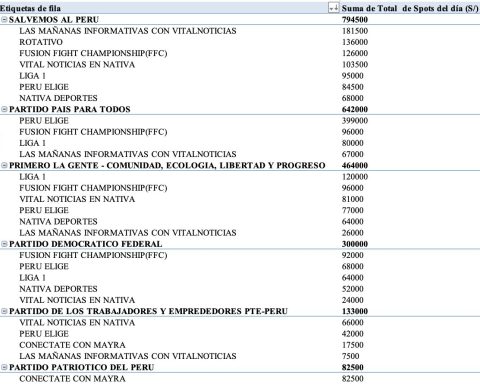This Monday, August 15, the reform came into force that streamlines the procedures to facilitate the hiring of foreigners in Spainso that immigrants who have lived in the country for at least two years can regularize their situation, if they are trained in sectors with job demand.
This modification of the Immigration Regulations has the objective of making the processes for granting work authorizations more flexible, and will allow undocumented migrants with two years in Spain to regularize their situation if they are trained through “rooting for training”, a measure that seeks to cover low-demand positions.
In this context, Julio Palomino, labor lawyer and main partner of the Palomino & Law Firm, points out that this reform effectively seeks to strengthen and benefit immigrants. However, the preference is for immigrants who already reside in Spain, since it has been seen that there are many Latin Americans in an irregular situation living there.
Is it easier for Peruvians to work in Spain?
Yes, since this modification to the regulation precisely facilitates the processes for granting work authorizations in favor of immigrants who are in Spain in an irregular situation as well as people who can be hired in the country of origin.
“Although this law modifies and gives priority to immigrants who already reside there, it must be recognized that this could benefit a Peruvian so that he can access a work contract in Spain. However, they would have to meet all the necessary requirements to enter on a regular basis.”Palomino points out.
On the other hand, the lawyer does not recommend that they enter informally, since the European country has a register where all immigrants are registered. That said, priority will be given to those who have resided for at least two years and those who are already in the country.
“Later, those who can arrive with a work contract are taken into account”he adds.
In this sense, it must be remembered that currently for a Peruvian to be able to access a work network in Spain from Peru, they must complete a procedure at the Spanish consulate and meet certain requirements.
What are the requirements to work in Spain?
The ideal means for a Peruvian to travel to Spain to work on a regular basis is through a work visa. However, as the specialist mentioned, not only the job offer is enough, since the employer must present it to the immigration office for it to be approved and a residence permit for work issued.
Then, this document must be sent to the worker to attach it to the visa application. Along these lines, in order to apply for a visa that allows you to work in Spain as an employee, you must be over sixteen years of age and have the following requirements:
- Completed form with an updated passport-type photograph and a white background
- Passport with a validity of not less than 4 months
- Payment of the corresponding fees
- Copy of the work contract that was delivered to the immigration office, stamped by the same office
- Residence and work authorization issued by the corresponding Government Delegation or Subdelegation, with the notification date
- Medical certificate stating that the applicant does not suffer from any disease that constitutes a risk to public health in Spain
- Criminal record
Are labor rights better in Spain?
Julio Palomino indicates that clearly Spain has better labor rights than Peru, which makes it attractive for a Peruvian to go to work there.
“Basically, there are greater economic benefits in favor of the worker in Spain, unlike Peru, which only considers aspects such as bonuses, CTS, maternity or paternity leave, health insurance, among others. In Spain there are different benefits”, holds.
For example, the minimum living wage in our country is S/ 1,025 (approximately US$ 270), for a minimum of eight hours of work, and in practice it is more.
While in Spain the minimum wage is “around 1,000 euros gross. So, you have to understand that the difference in salaries is notorious. Therefore, it will be convenient for a Peruvian to access a job there and earn a different margin than he can currently earn in our country”.
In addition to this, it must be taken into account that labor rights in the European country are different. In Spain there is a lot of talk about compensation for overtime and vacation payments, figures that in the Peruvian case are very rarely observed in practice.
However, there are other benefits that are universal and apply in all countries, such as leave and vacations, although they vary slightly depending on the country.

















